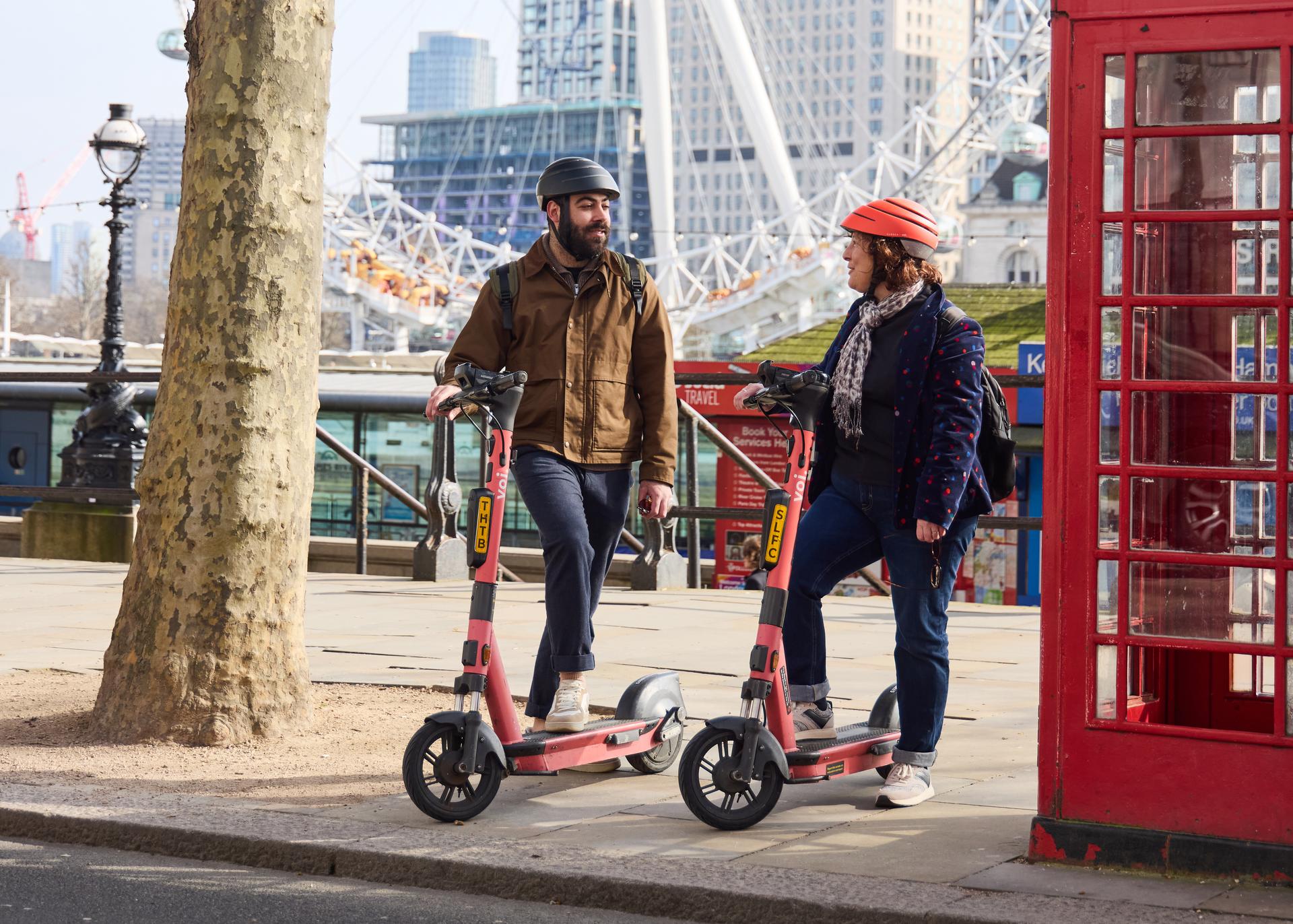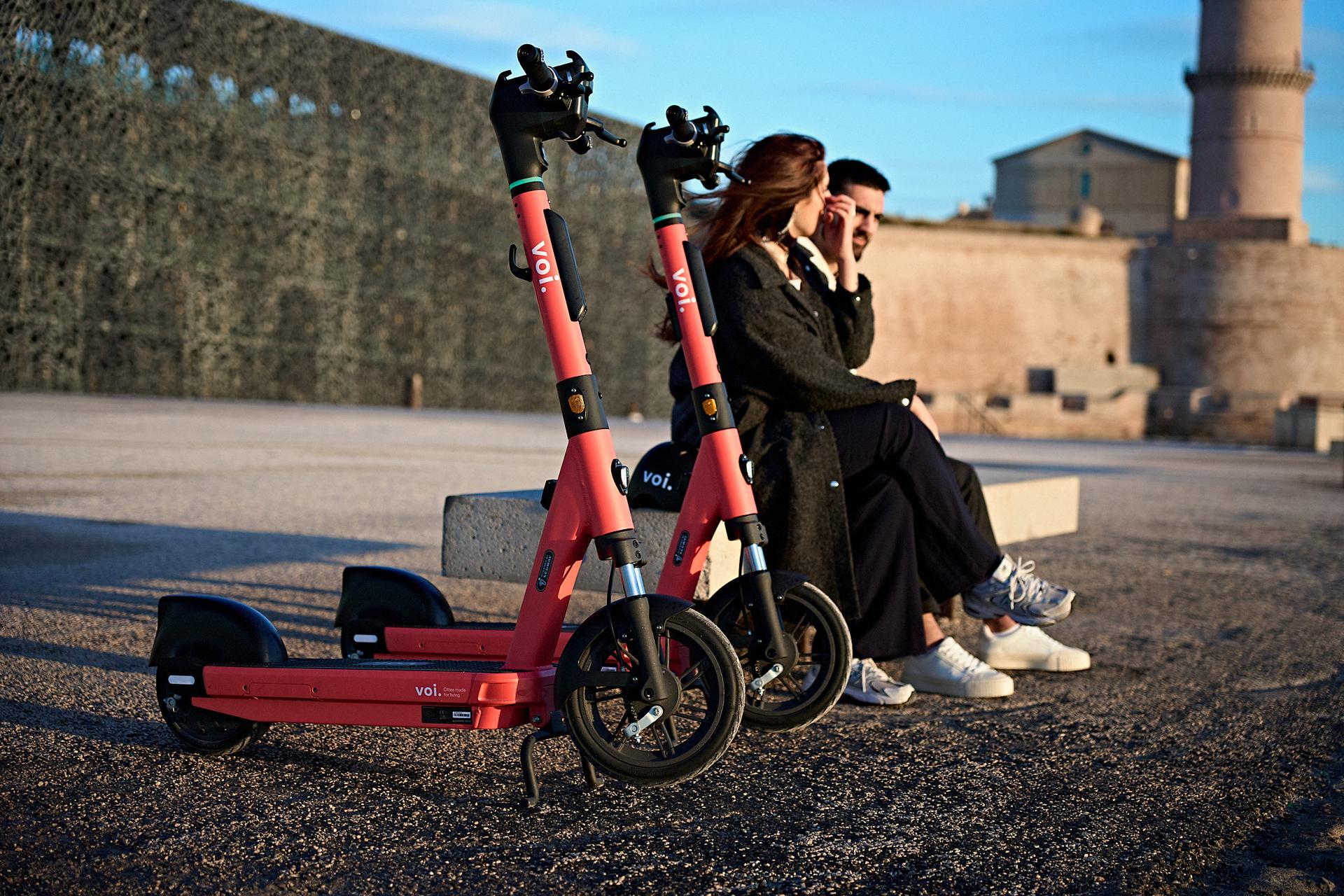Voi pledges to become climate positive by 2030

Climate positive means going a step further than carbon neutral, by saving more greenhouse gas emissions than we are generating. Our CEO and co-founder, Fredrik Hjelm, announced at COP26 that we are taking a big climate positive step forward with a target of 2030 and, in addition, achieving this without carbon offsetting. We have already been carbon neutral across all our operations since January 2020, and this pledge to be climate positive, announced at the International Transport Forum (ITF) event at COP26 on decarbonising transport held as part of COP26, is a very positive one indeed.
Voi’s new climate measures
In order to achieve climate positive status by 2030, we are taking several definitive measures:
Zero-emission operations: Voi will transition to fully electric operational fleets by early 2023. This refers to our vehicles used to transport e-scooters and e-bikes for maintenance and so on. Fleets and warehouses will be fully powered by renewable energy.
Local & sustainable sourcing: By 2023, Voi’s battery cells will be produced in Europe and the carbon footprint of European lithium-ion battery cells is expected to be 50% lower than traditional cells. In addition, we already source our e-bikes from Europe and we are striving to do the same with our e-scooters as soon as this is a viable option.
Low-carbon & circular economy vehicles: Working in close collaboration with our suppliers, our supply chain will be powered by renewable energy by 2030, with a view to creating a circular production model.
The transport sector’s contribution to carbon emissions
The harsh reality is that the transport sector is responsible for nearly 25% of Europe’s greenhouse gas emissions. Within that, road transportation accounts for 72%, be it domestic or across European borders. The EU has pledged to cut emissions by at least 55% by 2030 and we believe that Voi is, and will continue to be, a major part of the solution.
Replacing one billion car journeys with modal shift
At Voi, we don’t take one step when we can take several. Adding to our strong track record of climate leadership in the micromobility sector, we are also pledging to replace over one billion car journeys by 2030. We are already seeing a substantial modal shift, with our global data showing that, in 2021, on average 16.3% of Voi trips replaced short car journeys. By hitting this target of one billion car journeys being replaced, we will be responsible for cutting two million tonnes of carbon emissions that would have otherwise been produced by those car journeys across Europe.
As well as our own data mentioned above, there is increasing independent research that demonstrates an ongoing modal shift. This is thanks to the fact that we offer an ever-growing inclusive, accessible and affordable transport service. In addition to the environmental aspects, these are also pillars of sustainability at Voi. Consequently, in towns or cities where there is high adoption of micromobility, more and more urban residents are veering away from car ownership altogether.*
Collaboration creates change
Our vision has always been to shape cities made for living, free from noise and pollution whilst supporting the 15-minute city movement. The path to becoming climate positive will be challenging and require close collaboration and innovation to decarbonise supply chains. As a young and agile company, with a global team that is wholly committed to combating the climate crisis, we are confident that we will achieve our target. This, we believe, is the best way in which we can continue to show leadership within the private sector, and also by working in collaboration with the public sector, so that together we can achieve the overall Paris Agreement’s 1.5° C target.
Fredrik Hjelm, CEO and co-founder of Voi, said: “Voi’s e-scooters and e-bikes are already playing a critical role in cities in providing convenient and sustainable alternatives to cars. Climate change presents a serious threat to the liveability of cities around the world and we want to do everything in our power to take action. We want to go beyond carbon neutrality through offsets and become a climate-positive company. We’ll do this by implementing new climate measures such as sourcing European-made battery cells and circular vehicles.”


